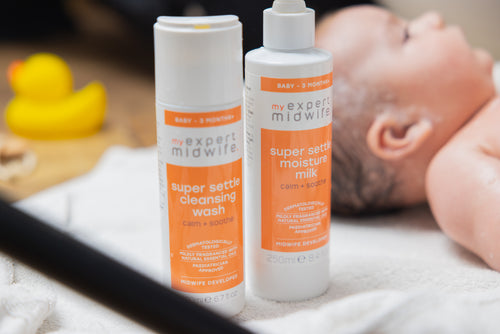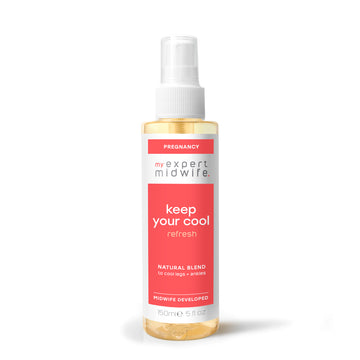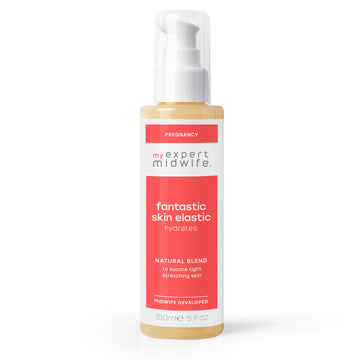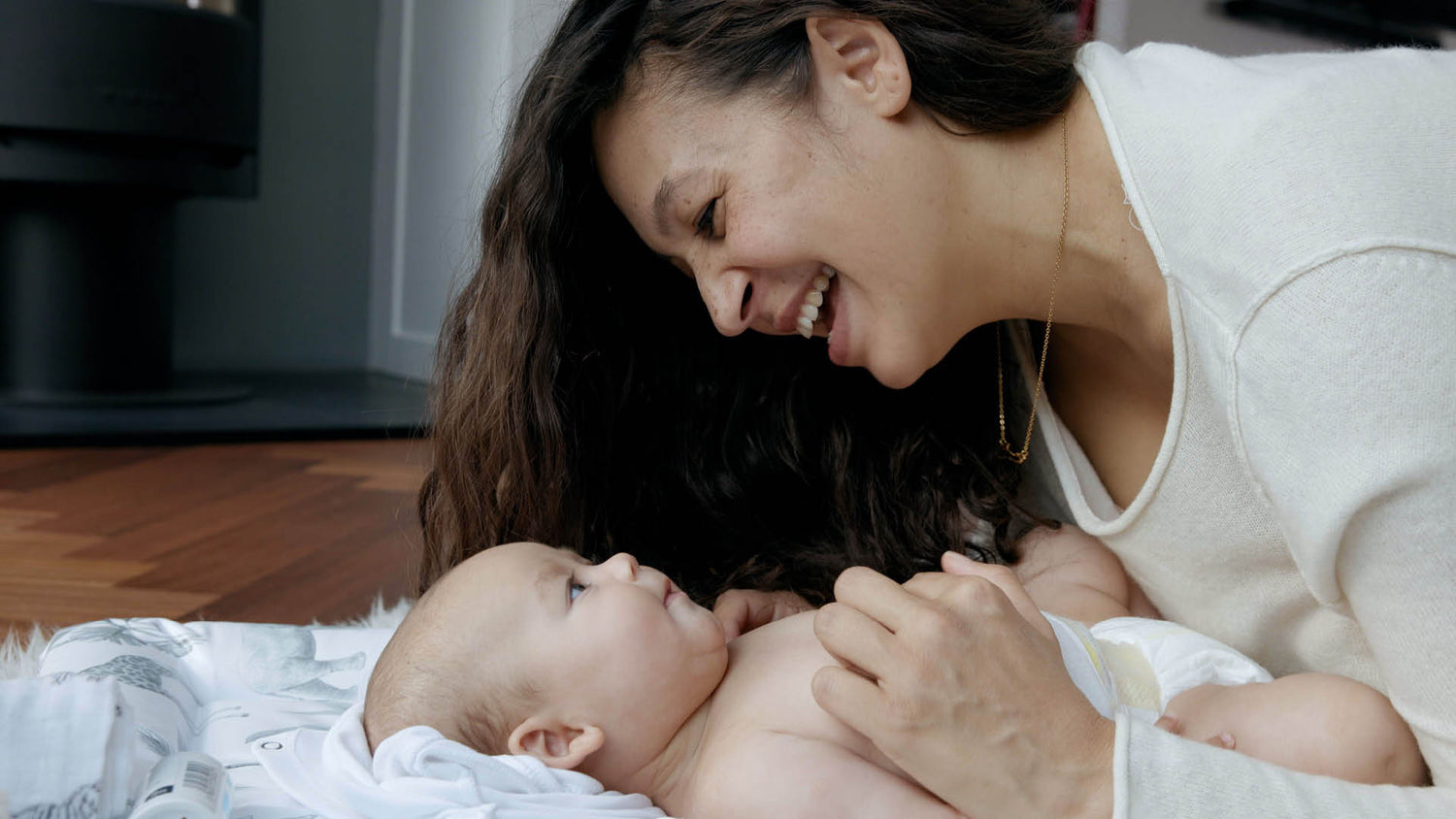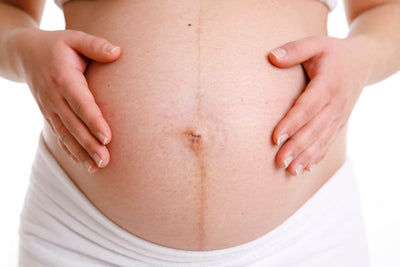About a quarter of women will experience itching when pregnant - it is a common pregnancy symptom. Itching can be all over the body or just on the legs or ‘bump’. Although it will usually resolve itself once your baby has been born, there are ways to ease itchy skin caused by pregnancy. Some of these remedies may also help with leg and foot swelling and cramps.
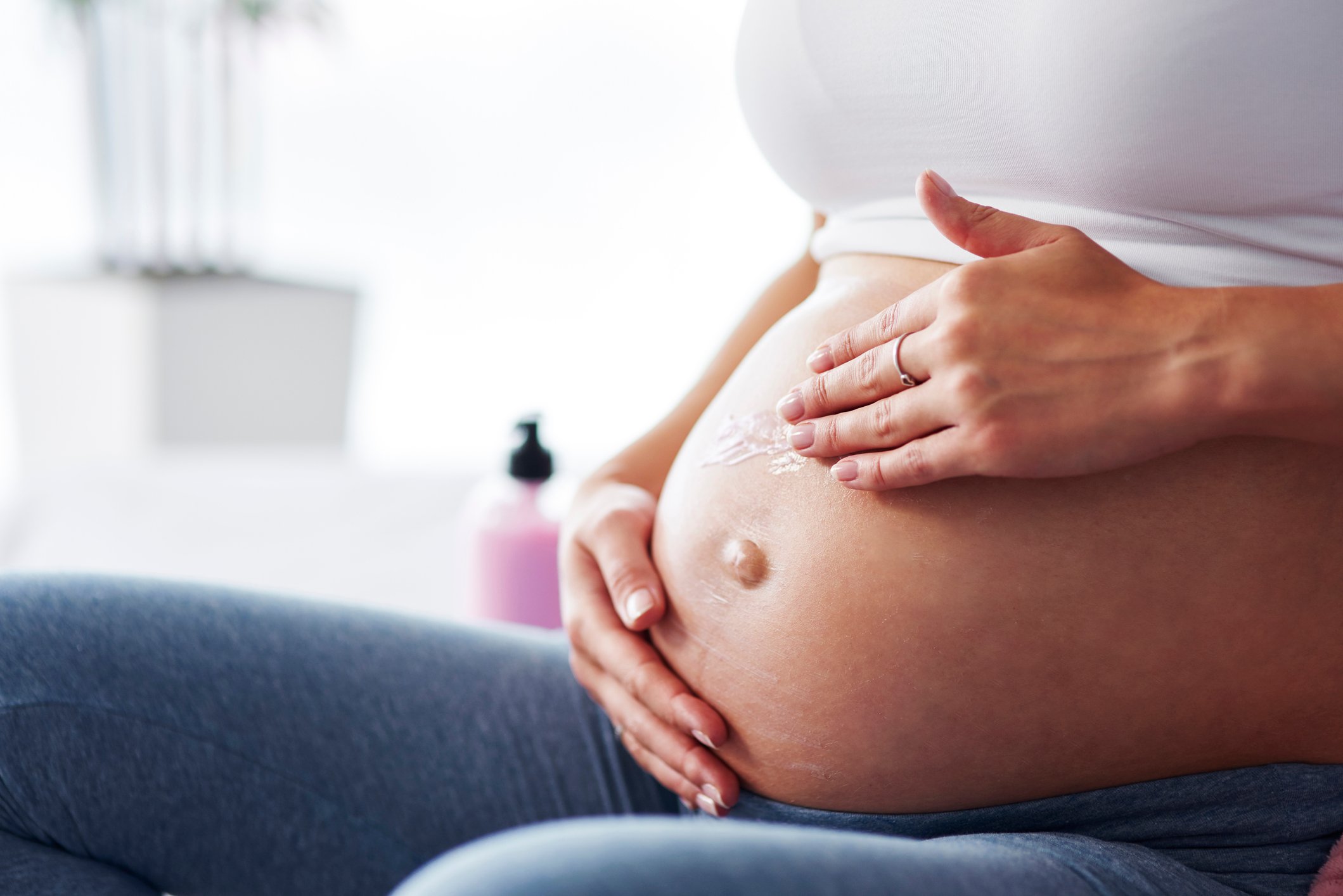
What Causes Itchy Skin in Pregnancy?
Itching when pregnant can be present from early pregnancy until your baby is born. Here we explain why changes in the body can cause itchy skin.
First Trimester
When you are pregnant, your body goes through lots of changes to support your growing baby. Increases in hormone levels and blood volume start in the first trimester of your pregnancy, and both can produce changes to your skin.
Second & Third Trimester
During the second and third trimesters of your pregnancy, your skin will stretch to accommodate your baby’s growth. You may also experience swollen legs and feet, which can cause irritation and itchiness as the skin stretches.
Skin Conditions Flare-Ups
If you have eczema or psoriasis, pregnancy and hormonal changes may temporarily cause your condition to flare up, or you may even find that they appear for the first time - it’s always best to speak to your midwife or doctor about this.
PUPPP
If you notice itchy red spots that spread to your arms and legs, this could be pruritic urticarial papules and plaques of pregnancy (PUPPP). Ask your doctor or midwife to look at it to confirm, but this is harmless to you and your baby and will disappear after your baby is born.
When should I be worried about itching during pregnancy?
If the itching is also on your hands and feet, it is important to see your midwife or doctor as there is a condition called Intrahepatic Cholestasis of Pregnancy (ICP), also known as Obstetric Cholestasis, which can affect your baby’s wellbeing.
The condition temporarily impairs liver function, causing bile acid to build up in your body, leading to severe itching. It affects around 1 in 140 women in the UK.
This condition is identified by a simple blood test and monitored throughout your pregnancy.
Symptoms of ICP
Seek medical attention if you are pregnant and experiencing any of these symptoms:
- The palms of your hands and the soles of your feet feel itchy
- Itching that gets worse at night
- Dark coloured urine
- Pale coloured poo
- Yellowing skin and whites of eyes (jaundice)
How early in pregnancy can Intrahepatic Cholestasis of Pregnancy start?
Women with ICP will usually begin to experience symptoms around week 30 of pregnancy, although they can start as early as 8 weeks of pregnancy. If you think you may have this condition, consult your midwife or doctor.
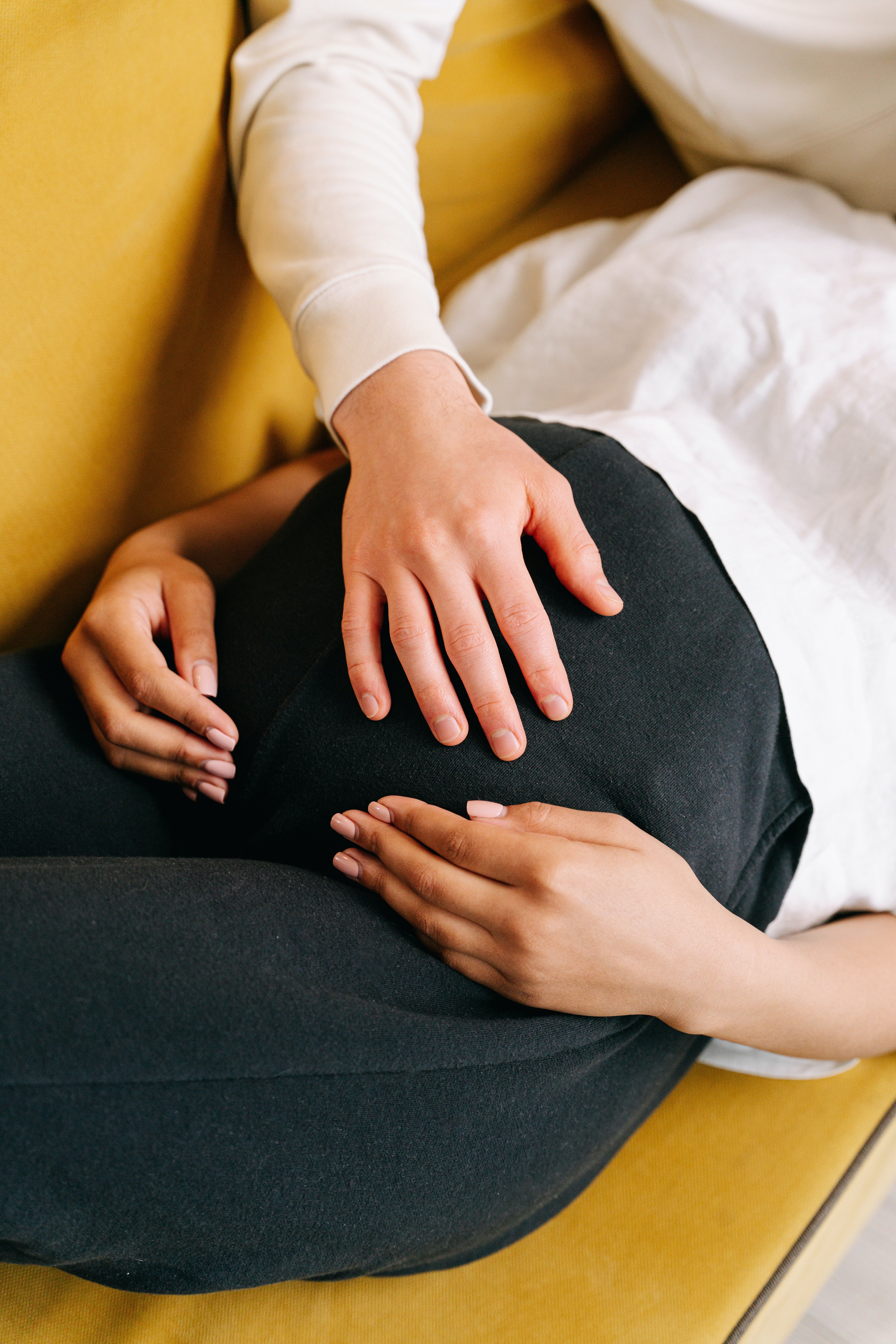
How can I stop itching all over during pregnancy?
Most itching during pregnancy is harmless. Yet, it can be frustrating, disrupting sleep and making you feel pretty uncomfortable. To keep you comfortable and happy during your pregnancy, we recommend the following tips to ease the itch in pregnancy:
1. Stay Cool
Itching in pregnancy can be somewhat relieved by keeping cool. Wear loose-fitting natural fibres, stay out of direct sunlight and use cool compresses to cool down your skin. Doing this will help to minimise swelling, itchiness and rubbing. Take a look at our previous blog post on coping with summer heat during pregnancy.
2. Moisturise Your Body
Keep your legs and whole body moisturised to prevent your skin from drying out and causing the urge to scratch. Moisturiser containing strong perfumes can cause further irritation to itchy skin. So instead, use a moisturiser containing natural ingredients such as My Expert Midwife’s award-winning Fantastic Skin Elastic.
3. Reduce Bath & Shower Temperatures
Remember to take cooler showers or baths. Particularly as you approach your due date, try adding some organic oatmeal to your cool bath, as this has soothing properties for your skin.
4. Soak Your Feet in Cool Water
If you have itchy feet in pregnancy, you can soak your feet and lower legs in a cool bowl of water to help reduce swelling and itchiness. Remember to moisturise afterwards to prevent your skin from drying out.
5. Use A Cooling Spray
If you are struggling to sleep, use a cooling spray, such as our Keep Your Cool spritz. Spray it all over your body to cool and calm the skin. It contains soothing aloe, plus peppermint and eucalyptus essential oils that naturally cool your skin.
6. Massage Itchy Legs
If you have itchy legs in pregnancy, find a willing partner to gently massage your legs as this will encourage the blood flow to the skin's surface and enable better circulation and hydration in your body. Our Marvellous Massage Stick contains shea butter ideal for soothing inflamed skin.
7. Follow A Morning & Evening Skin Regime
If you have all over itchy skin during pregnancy, it may be beneficial to try using Keep Your Cool and Fantastic Skin Elastic in combination as an evening and morning regime. This will help to soothe the itching and cool hot and bothered bodies.
Key Takeaway
Itching and skin stretching in pregnancy can cause much discomfort and adversely affect our daily lives. Try our suggestions above to help relieve your irritation and allow you to enjoy your pregnancy a little more.
At My Expert Midwife, we develop products specially formulated by expert midwives for mums-to-be, new mums and newborns. Each product uses only premium natural ingredients carefully chosen for the benefits they offer. Discover our range of products for itchy stretching skin.
